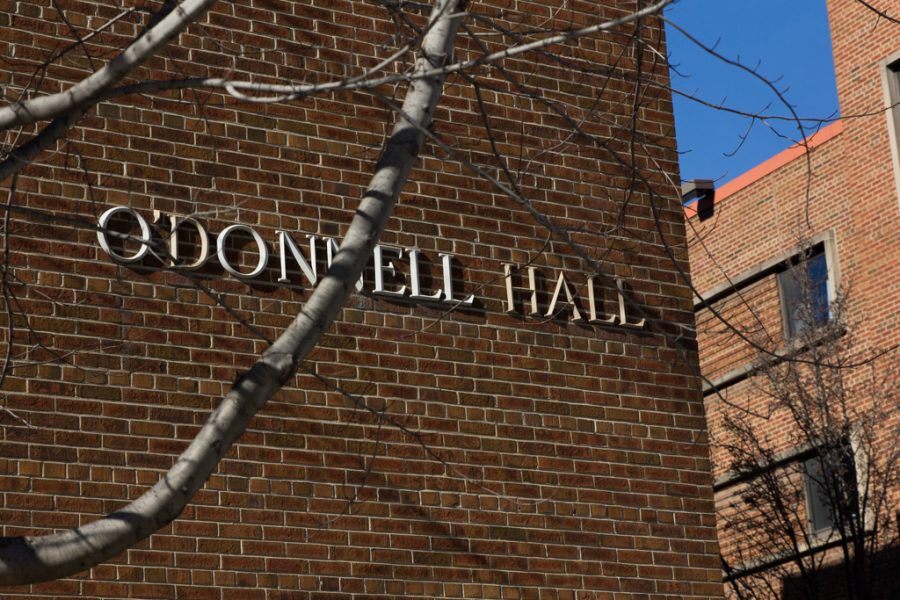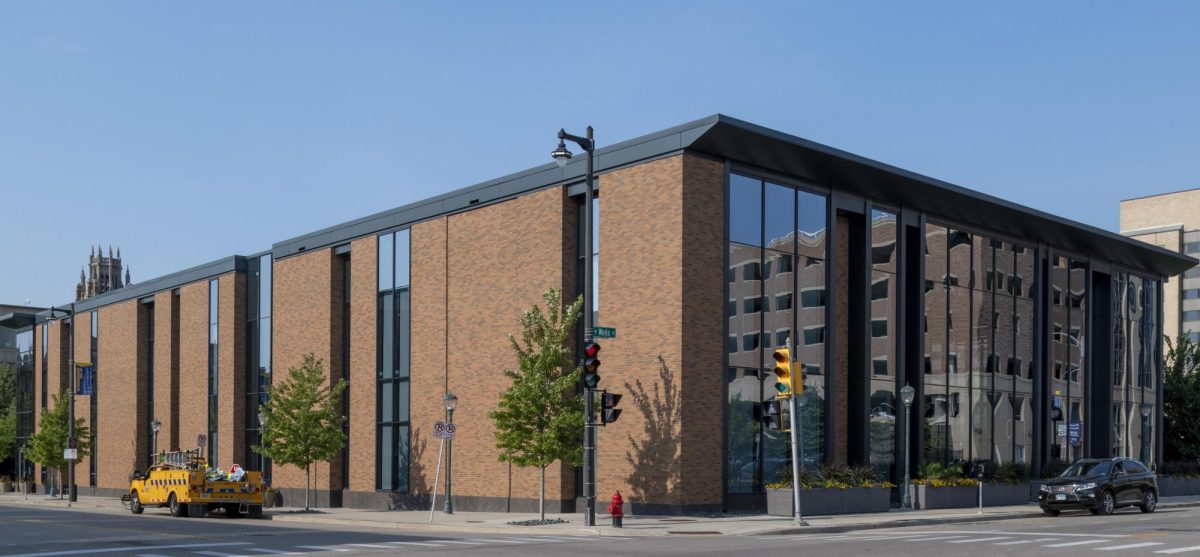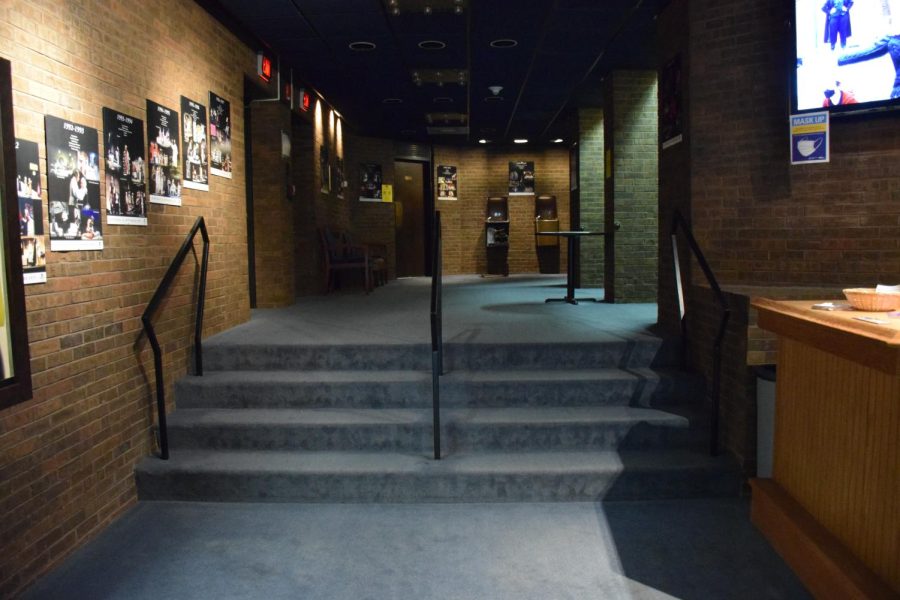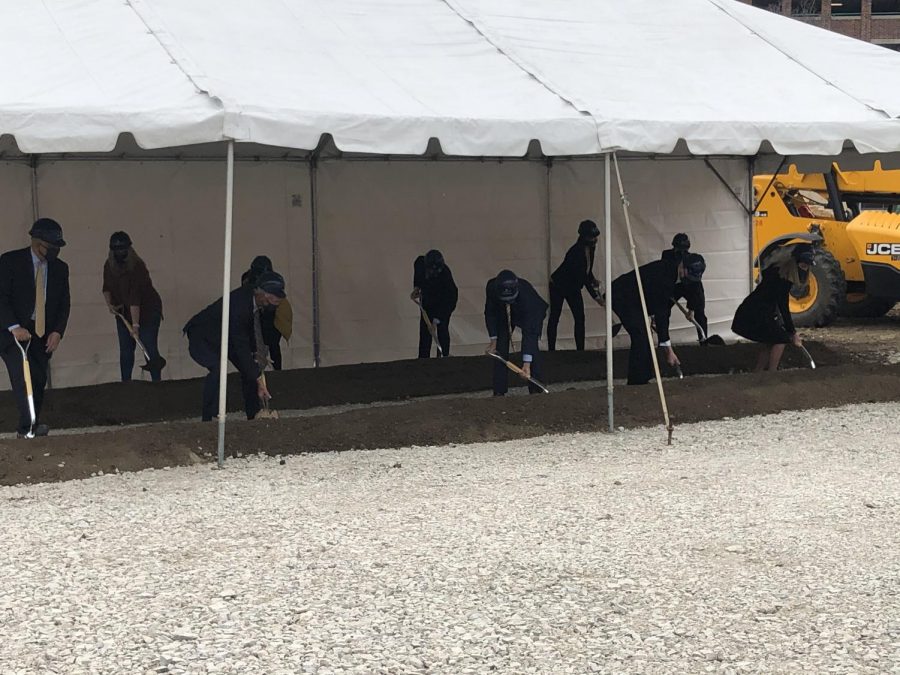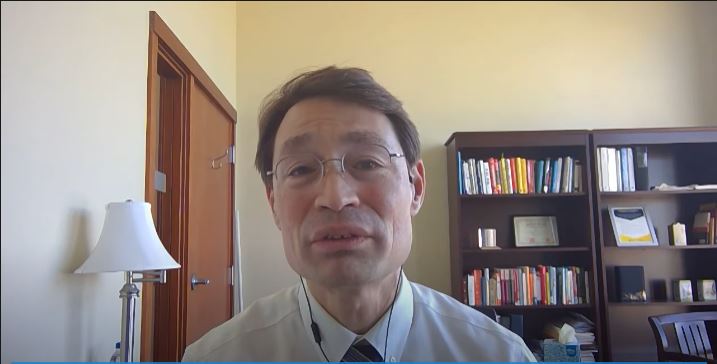O’Donnell Hall residents had two evacuations Wednesday Jan. 30 and another Friday Feb. 1 after fire alarms went off in the building.
Maddy Aubry, a freshman in the College of Business Administration, said resident assistants told residents to grab warm clothes and blankets to go outside after the fire alarm went off in the morning.
“There was literally nobody around because it was negative 50 degrees outside,” Aubry said.
Aubry said residents could not re-enter the building for about 20 minutes and were instructed to go to The Commons.
“I thought the evacuation came at a really unfortunate and inconvenient time because it was the coldest day of the year,” Chuck Kolawole, a freshman in the College of Communication, said.
Classes on Wednesday were cancelled due to windchill temperatures reaching between 40 and 50 degrees below zero, according to the National Weather Service.
“A fire alarm is an emergency situation that, by law, requires immediate evacuation of an area or building,” Chris Stolarski, university spokesperson, said in an email.
Aubry said she heard from word of mouth that the fire alarm was set off by burnt bacon. She said the second fire alarm that day was a glitch.
Aubry said she received an email from the O’Donnell Hall staff saying the fire alarm went off Friday because a radiator malfunctioned in the basement and had to be drained.
O’Donnell Hall staff told residents in an email that if their rooms were too cold Friday night, common spaces in The Commons were readily available until the repairs were completed.
“A lot of people were mad about that because you shouldn’t have to go somewhere else where none of your stuff is because you’re freezing cold,” Aubry said.
“We take student safety seriously, and our residential policies and procedures, as well as our maintenance plans, are designed with safety as the highest priority,” said Lora Strigens, vice president for planning and strategy.
Kolawole said the temperature in his dorm room dropped to about 48 degrees.
Aubry said heaters were being checked and fixed in O’Donnell early last week.
The Commons residents were also instructed to evacuate the building after a fire alarm went off in the building on Wednesday.
“Marquette University Police officers were on the scene immediately following the alarm, Stolarski said. “It was discovered quickly that the alarm was due to a ruptured sprinkler line.”
Stolarski said that with the approval from the Milwaukee Fire Department and MUPD, students who did not dress for the cold were allowed to stay in the lobby and those who had proper clothing were allowed to go to either McCabe or Humphrey Hall.
Strigens said extreme cold temperatures always have the potential to damage or interrupt building systems.
“The best thing to do to keep occupants safe is to evacuate until the actual cause of the alarm can be established and an all-clear is called to get people safely back into the building,” Strigens said.
Strigens said the university has a multimillion-dollar facilities budget for residence halls and apartments that are code compliant and include maintenance, mechanical services and utilities such as regular inspections and certification of fire systems, mechanical systems and components such as heating ventilation and air conditioning systems and electrical services.
Stolarski said being code compliant means the building standards meet legal code standards.
Room rates and apartment rents are the predominant funding sources for the residence hall and apartment maintenance budget, Strigens said.
“This is in line with how maintenance would be funded in any private multi-family housing development, such as apartments and condominiums,” Strigens said.

